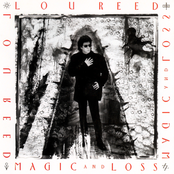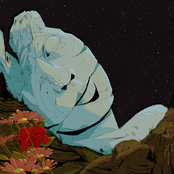Back to William Roberts, then – railway plate layer, ganger, publican, entrepreneur, civic stalwart, JP and philanthropist. A very rare man in his time, he appears to have been generous, considerate, imbued with a real sense of social justice, and was undoubtedly a sharp-dealing rogue too.
I am terribly sad this fine gentleman has not even a plaque in his honour in Brownhills, and I’d really like one of the successes of this blog to be achieving some kind of memorial or civic recognition no matter how small, to the original Mr. Brownhills.
This thread started last week, when I featured scans of the April 1990 edition of the Brownhills Gazette, which contained an article by local lady Gwen James, detailing her version of the history of the Station Hotel. As I expected, that article raised some eyebrows in the dress circle, and a further version of the history was detailed in ‘Brownhills Past and Present’, the book issued by Brownhills School in 1985.
Peter ‘Pedro’ Cutler waded in with his own research a few days ago, and now this, a fine piece of writing on William and his empire by Gerald Reece, and first published in 1995 in his book ‘Brownhills: a walk into history’. It bears all the hallmarks of Gerald’s other works; clearly exhaustively researched and well written, I think it ties things up – but I have more material to come found by Roger ‘Ziksby’ Jones later which is rather excellent, too.
Thanks to Gerald for letting me reproduce his work here. It really is a pleasure to do so. Don’t forget he’s coming back soon to give a local history talk which will be a cracking event.
Please read this in full when you get time, and do comment or mail me your thoughts – BrownhillsBob at Googlemail dot com.
Gerald wrote:
The Station Hotel was the home and kingdom of William Roberts. He was perhaps the finest and most beneficial man that Brownhills has ever known.
William Roberts was bom in December 1828 in Shenstone close to The Bull’s Head public house. He was the son of George and Mary Roberts. Mary’s maiden name was Pheasant. George Roberts had been a soldier and fought at Waterloo. When William was young the family moved to Brownhills and took up residence at Coppice Side. During his youth William worked in the local coal mines. After the death of his mother he left the coal mines and obtained work on the South Staffordshire Railway that was then being constructed. He started by working as a plate-layer but very quickly rose to the position of ‘ganger’ or foreman. He moved away from the area in 1847 and travelled to Durham where he worked on a railway project. He moved on the Huddersfield where he worked on the Standedge Tunnel for the Huddersfield and Manchester Railway and Canal Company. Following this he was employed for a time by the Hartlepool Corporation. It was while he was working on the Yarm Viaduct that he met Ann Bradley, the daughter of a local shoemaker. William and Ann were married at Yarm in 1852.
William continued working around the North of England until 1859 when, upon the death of his Father, he decided to move back to the Midlands. He took over the Tower Inn, Potter’s Hill, Aston. He remained there for nine months before moving to Brownhills where he took over the Station Inn on 4th of February 1860. William resided there for 46 years, except for one brief period. In 1887 he sold the business to Messrs. Showells Limited and retired to live at Warren House Farm. Such were his feelings for ‘The Station’ that he soon regretted his move and after only four months in exile he repurchased the property, paying £2,000 more for it than he had sold it for. During his four months absence the Landlady of the ‘Station’ was a Mrs. Jones. After his return William put all his effort into ‘His Kingdom’, he transformed the once small Inn into the three bar Station Hotel, complete with Music Hall and its own Brewery. From his humble beginnings William built himself an empire. After his death in 1906 his estate was valued at £126,868. He owned 26 licensed houses, all within a six mile radius of Brownhills.
In addition to the Station Hotel he owned a further 6 public houses in Brownhills, namely:-
The Shoulder of Mutton The Warreners Arms
The Royal George The Swan Inn
The Wheatsheaf The Rising Sun
He also owned the following:-
Hednesford The Globe Inn Bloxwich The Spotted Cow Inn
The Anglesey Hotel The Spring Cottage
Chadsmoor The Crown Inn Walsall Wood The Boot Hotel
Cannock The Crown Hotel Pelsall The White Lion
Bridgtown The Bridgtown Tavern Burntwood The Star Inn
Wyrley The Swan Inn Norton Canes The Vine
Newtown The Freemason’s Arms (Outdoor Beerhouse)
Walsall The Newport Arms Ogley Hay Rural The Muckley Corner
The Elephant and Castle Hotel
The Vine Inn

That train logo found its way onto bottles and crockery. Image from ‘Brownhills: A walk into history’ by Gerald Reece.
He also had large interests in a distillery in Belfast and in the Lichfield Brewery Company. He owned a large amount of private and business land in Brownhills and District. He took a great interest in agriculture and was a breeder of prize cattle and pigs. He was the owner of three large faiming estates, including Pipe Place Farm of 300 acres, Warren House Farm of 90 acres and Lodge Farm of 65 acres. As well as being a successful business man he also played an active part in Local Government.
He was first elected to the Brownhills Local Health Board on 8th April 1879 and he remained as the representative for the Central Ward until 1894. He was Chairman of the Board from 1891-94. He was elected to a seat on Brownhills Urban District Council in 1897 and in 1904 he became Chairman of that body. In Council matters as in his own business he was a rigid economist. He was a charitable man and was always willing to support a fair cause. In 1893, at the time of the great miners strike, he supplied food to the starving miners and their famines. He made regular financial donations to all the local hospitals. He donated part of the land upon which the new Mount Zion Chapel was built in 1895. In 1898 he presented Brownhills Urban District Council with a new Merryweather ‘Gem’ Fire Engine.
As a Justice of the Peace he would often pay the fines of miscreants brought before him if he thought the charge unfair. He had very strong Christian behefs, at one time he held the position of Warden at St. James Church. The Church tried to discredit him because of his brewery business, he never forgave their trying to blacken his character. In 1901 the Church made an application to hire the Council Offices Public Room as a venue for a concert in aid of the Church Bell Fund. William offered to pay for the bells himself if only the Church would give him a fair hearing. When they did meet to discuss the matter the Vicar, The Rev. Arrowsmith, refused to talk to him.

Early Brownhills fire brigade, outside the council house. Image from ‘Brownhills: A walk into history’ by Gerald Reece.
William Roberts died on 5th February 1906, he was 77 years old. Such was his devotion to his Council duties that he had even apologised in advance to the Board for his impending death and the trouble it would cause. His funeral was the largest seen in Brownhills to that day. Twenty carriages transported the chief mourners from the Station Hotel to St. James Church. The route was lined by thousands of spectators.
Having no children of his own William left the bulk of his estate to his wife Ann and his nephew George. He requested in his will that they try to make a go of the ‘Elite’ Brewery business. George died on 26th January 1910 aged 44 years, Ann died on 17th July 1910 aged 77 years. The Roberts’ reign was over. William, Ann and George are buried together in St. James Churchyard. The family vault is surmounted by a red granite obelisk that stands 16 ft. High and weighs 8 tons, it was sculptured by Arthur Chidley of Walsall. The memory of William and Ann Roberts is perpetuated by an annual charity that still doles out money from their bequests at Christmas times.
After Ann’s death the estate was divided up and sold off. Most of the Roberts’ family fortune was inherited by Clara Cresswell, she had been a helper at the Station Hotel and a close companion to Ann.
The Station Hotel survived through several hands:
Sam Smith Ron Smith
J. Tideswell F.M. Heath
Thomas Mason Barry Dyke
Louisa Mason Alan Wright
Its doors finally closed in November 1983. The building rapidly fell into a state of decay and became a crumbling eyesore until it was thankfully demolished in 1990. The last out-building of William Roberts’s home and brewery empire was demolished in March 1991.
The site of the Station Hotel is now occupied by the ALDI Supermarket.




 RSS - Posts
RSS - Posts




What an amazing man and what a contributor to Brownhills and its history.
It is very sad that there is nothing in the town (by the town) to commemorate
his life.
Dave (Eddy) Edwards
Going back to the article from the Lichfield Mercury, written just after Bill’s death, it states that the family removed to Brownhills, to farm known as the “Tommy Shop”. However Gerald says that they moved to Coppice Side.
Looking at the 1851 census the family were at Hill Hook in the parish of Sutton Coldfield; William was 13 years old, and his brother Jeremiah about 3 years older. As Bill left to go north in 1847, at the age of 19, then he would have spent at the most 6 years in the locality.
In the 1861 census there is a Jermiah in the Sutton Parish that fits the bill, and he is a market gardener.
The Lichfield Mercury are probably wrong, but I guess that we may have to wait for Gerard’s talk to find where he obtained the Coppice Side information.
The above should read 1841 Census
Hi I Bib
Perhaps the Tommy shop was the farm in coppice Side..near Engine Lane in Brownhills?
Kind regards
David,
Yes, that’s correct I think
Check this price for more detail
http://brownhillsbob.com/2012/07/14/a-token-of-my-respect/
Cheers
Bob
Nice one. Big thank you to all involved. You never know there maybe a blue plaque on ALDI`S one day! dedicated to are William Roberts.
Pingback: On a clear day | BrownhillsBob's Brownhills Blog
LICHFIELD MERCURY SHOCKER…September 1882
William Roberts (Station Inn and member of the Local Board) and Thomas Bickley
(Swan Inn) have no truck with the Blue Ribbon Army!
In August William Jones, a miner, had been convicted for assaults on Mr Arblaster and Thomas Ross. As a result summonses were taken out against William Roberts and others for aiding and abetting Jones.
In August there had been a procession of the Blue Ribbon Army, and an attempt was made to recover a banner the members of the Blue Ribbon Army were carrying.
Settled out of Court
Thomas Bickley of the Swan Inn was summoned for using threats to Jabez Turner, at Brownhills. Turner was wearing the badge of the Blue Ribbon Army…
The Bench dismissed the case, and Turner was called upon for the costs. He had no money and so Mr Arblaster paid.
(A Tribute to Mr Murphy and the Blue Ribbon Army)
http://www.mcgonagall-online.org.uk/gems/a-tribute-to-mr-murphy-and-the-blue-ribbon-army
WILLIAM ROBERTS’S BROWNHILLS CELBRATED STATION ALES
THESE ALES are brewed from choice Malt and Hops, and the purest water in existence, have so won their way into popular favour that BROWNHILLS BREWERY has become a household word.
(Advert Jan 1884)
Pingback: Just William | BrownhillsBob's Brownhills Blog
Pingback: Special branch | BrownhillsBob's Brownhills Blog
Pingback: The estate we’re in | BrownhillsBob's Brownhills Blog
Clara Cresswell was my great aunt and she ended up with properties inChurch St/rd.
Pingback: Some top brass, a tuba groover and and unsung hero – BrownhillsBob's Brownhills Blog